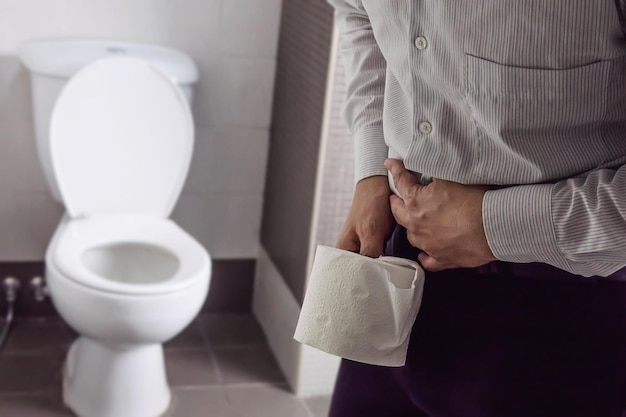Constipation is a common issue that many people face. It may seem minor, but it can impact daily life and overall well-being significantly. If you’ve ever felt bloated or uncomfortable, you know how distressing it can be. Understanding the constipation causes is vital to manage and alleviate symptoms effectively. Recognizing and addressing constipation triggers can pave the way to better digestive health and improved quality of life. So, let’s dive into the root of the problem and explore potential solutions.
The Hidden Triggers: Factors Leading to Constipation
Constipation isn’t just about diet; it has various constipation triggers.
- Dietary factors: A lack of fiber-rich foods like fruits and vegetables, alongside insufficient water intake, can lead to constipation. Fiber helps your intestines function well, and water aids in keeping movements smooth.
- Sedentary lifestyle: Regular movement keeps your digestive system moving too. Sitting too much or lack of exercise can slow digestion.
- Stress and anxiety: Your gut responds to emotional stress. High stress levels may increase constipation. Managing stress can prevent digestive disruptions.
- Medical conditions: Diseases like diabetes and hypothyroidism may worsen constipation. If you have these conditions, extra care is needed to address potential constipation causes. It’s important to talk with a doctor about symptoms and management.
- Overuse of laxatives: Relying heavily on laxatives can weaken your bowel muscles over time. While they might seem like quick fixes, they lead to further complications if used excessively.
Understanding these constipation triggers is the first step towards healthier bowel habits. Making suitable changes can greatly improve bowel regularity.
Constipation Management: Simple Strategies for Improvement
Managing constipation requires simple lifestyle adjustments:
- Dietary changes: Add fiber gradually into your diet. Foods like cereals, beans, and leafy greens can enhance digestion. Remember, more fiber means more water; keep hydrated to aid the process.
- Physical activity: Incorporate regular exercise into your routine. Activities, even as simple as walking, boost digestive health.
- Heed the call: When you feel the urge to go, don’t postpone. Delaying bowel movements can lead to constipated habits.
- Natural remedies: Prunes or bran can be effective for some. These natural options often help activate the digestive system.
- Use over-the-counter solutions cautiously: While stool softeners and similar products can aid relief, it’s crucial to use them sparingly and under medical advice to avoid dependence.
Constipation management is achievable with mindful adjustments. It’s about finding balance and being patient as your body adapts to a new, healthier routine.
When Constipation Indicates a Bigger Issue: Seeking Professional Guidance
Most of the time, constipation doesn’t signal a severe issue. However, it can sometimes indicate a more significant health concern:
- Serious symptoms to watch for: If you experience sudden constipation, blood in the stool, or unexplained stomach pain, consult a doctor. These might be signals your body needs attention beyond typical constipation treatment options.
- Children’s constipation: If your child is struggling with constipation, keeping track of their symptoms is crucial. If their bowel habits change or discomfort continues, seek pediatric advice.
- Mental health connection: Emotional health heavily impacts physical conditions. When stress is left unmanaged, it can directly influence digestive health, emphasizing stress management’s role in preventing constipation complications.
Reassuringly, most constipation treatment options result in a positive outcome. However, if symptoms persist, medical help ensures the problem doesn’t escalate. Seizing control over one’s health means acknowledging when it’s time to seek professional guidance.
By understanding and addressing constipation triggers, aligning with the right constipation management practices, and staying informed about when to reach out for help, one can effectively navigate and resolve constipation complications.
